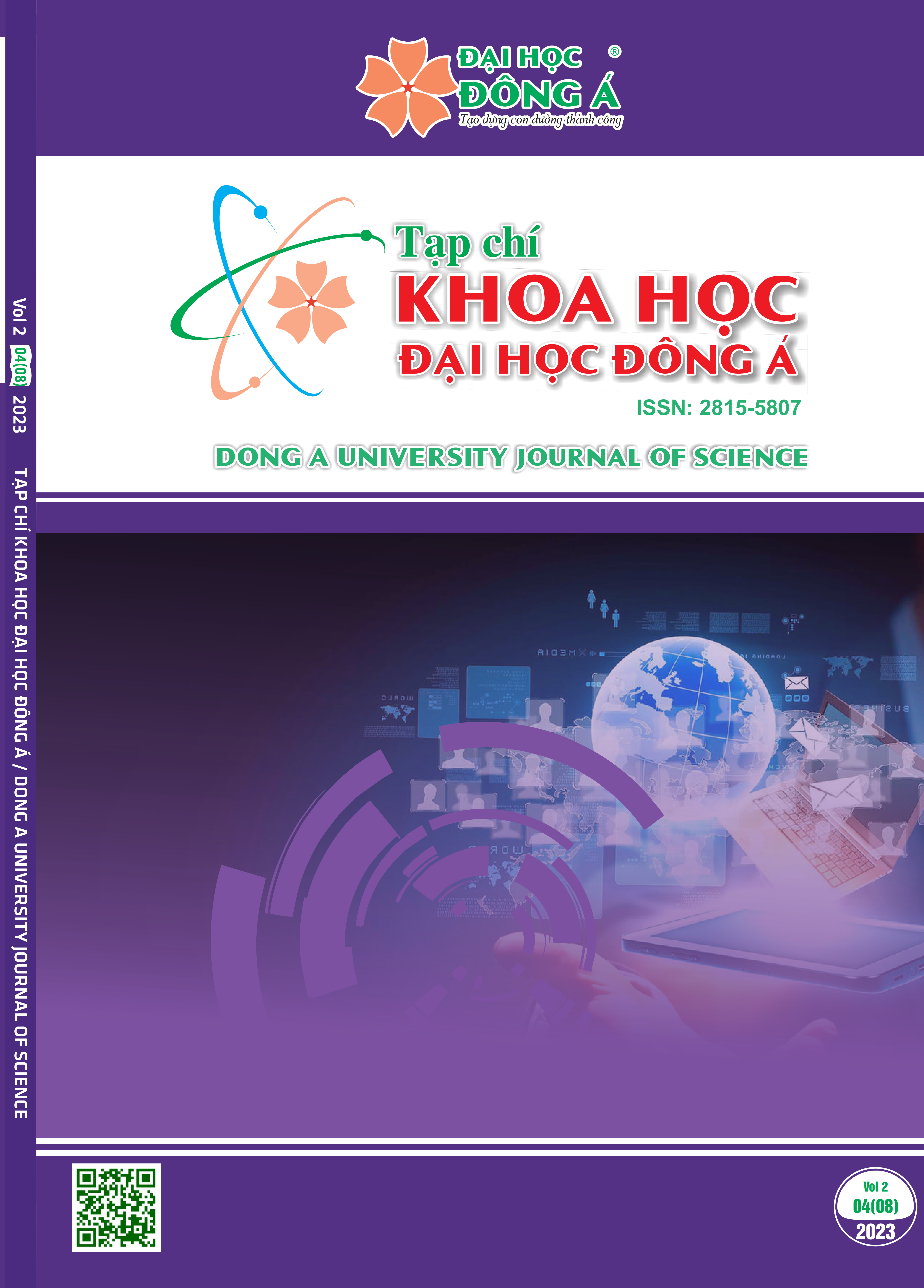Những yếu tố tác động đến ý định đơn phương chấm dứt hợp đồng lao động của người lao động trong giai đoạn dịch COVID-19
Nội dung chính của bài viết
Tóm tắt
Dưới ảnh hưởng của đại dịch COVID-19 vừa qua, tình trạng người lao động đơn phương chấm dứt hợp đồng lao động ngày càng nhiều, điều này làm ảnh hưởng đến nguồn lực lao động và khả năng sản xuất, kinh doanh trong và sau đại dịch. Nghiên cứu hiện tại áp dụng phương pháp nghiên cứu định lượng để tìm hiểu các yếu tố ảnh hưởng đến ý định đơn phương chấm dứt hợp đồng lao động của người lao động. Kết quả nghiên cứu chỉ ra rằng tất cả 4 nhân tố bao gồm: nhận thức về sự nguy hiểm của dịch COVID-19, thái độ của người lao động, chuẩn chủ quan và kiểm soát hành vi có tác động tích cực đến ý định đơn phương chấm dứt hợp đồng lao động của người lao động. Kết quả nghiên cứu cũng cho thấy rằng người lao động có bệnh nền và người lao động có nhận thức pháp luật thấp có ý định đơn phương chấm dứt hợp đồng lao động trái pháp luật cao hơn. Từ các kết quả nghiên cứu, nhóm tác giả đã đề xuất một số kiến nghị và chính sách cho các cơ quan chức năng và các công ty, doanh nghiệp để góp phần giữ chân người lao động.
Chi tiết bài viết
Từ khóa
lý thuyết về hành vi được hoạch định, lý thuyết về nguy cơ được nhận thức, đơn phương chấm dứt hợp đồng lao động, COVID-19
Tài liệu tham khảo
Al-Rasheed, M. (2020). Protective Behavior against COVID-19 among the Public in Kuwait: An Examination of the Protection Motivation Theory, Trust in Government, and Sociodemographic Factors. Social Work in Public Health, 35(7), 546-556.
Bauer, R. A. (1960). Consumer behavior as risk taking. Proceedings of the 43rd National Conference of the American Marketing Assocation, June 15, 16, 17, Chicago, Illinois, 1960,
Chương, P. H. J. T. c. K. t. v. P. t. (2020). Tác động của đại dịch COVID-19 đến nền kinh tế việt nam. 274, 12.
Hair, J., & Black, W. (2009). Multivariate data analysis (7th International Economy Edition). In: Upper Saddle River, NJ: Prentice Hall.
Hoàng, T., & Chu, N. M. N. (2008). Phân tích dữ liệu nghiên cứu với SPSS (Dùng với SPSS các phiên bản 11.5, 13, 14, 15, 16)-Tập 1. Hồng Đức.
Khoa, B. T. (2017). Nghiên cứu nhận thức bảo vệ thông tin riêng tư của người mua hàng trực tuyến tại TP. HCM. Journal of Science Technology-IUH, 26(02).
Lam, T., & Hsu, C. H. C. (2004). Theory of Planned Behavior: Potential Travelers from China. Journal of Hospitality & Tourism Research, 28(4), 463-482.
Ngô, T. T. H. (2011). Vi phạm pháp luật về hợp đồng lao động.
Nguyen, H. T., & Tang, C. W. (2022). Students’ Intention to Take E-Learning Courses During the COVID-19 Pandemic: A Protection Motivation Theory Perspective. The International Review of Research in Open Distributed Learning, 23(3), 21-42.
Nguyễn, T. Đ. J. V. J. o. S. L. S. (2013). Bồi thường thiệt hại trong pháp luật về bảo vệ quyền lợi người tiêu dùng. 29(2).
Nguyen, T. T. T. (2023). Citizens' intentions to use e-government during the COVID-19 pandemic: integrating the technology acceptance model and perceived risk theory. Kybernetes, ahead-of-print(ahead-of-print).
Nunnally, J. C. (1978). An Overview of Psychological Measurement. In B. B. Wolman (Ed.), Clinical Diagnosis of Mental Disorders: A Handbook (pp. 97-146). Springer US.
Qiao, Y. (2011). Instertate fiscal disparities in America. New York London: Routledge.
Salgues, B. (2016). Health industrialization. Elsevier.
Than, N. H., & Truc, N. T. T. (2021). Factors Affecting Citizens' Participation Intention in New Rural Building Projects: An Empirical Study in Long An Province, Vietnam. Journal of Saemaulogy, 6(1), 31-60.
Uyên, P. T. T., & Long, P. H. (2020). Ứng dụng lý thuyết hành vi dự định (tpb) trong nghiên cứu ý định lựa chọn khách sạn xanh của du khách tại thành phố Đà Nẵng. Research gate.
Diệp Trương (2021). Nhìn lại đợt dịch lần 4: chuyển hướng kịp thời để thích ứng an toàn, kiểm soát dịch hiệu quả. Trang thông tin điện tử Mặt Trận Tổ Quốc Việt Nam
Đoàn Thị Phương Diệp (2020). Quyền đơn phương chấm dứt hợp đồng lao động của người lao động theo quy định của Bộ luật Lao động năm 2019. Tạp chí Nghiên cứu lập pháp
Nguyễn Thị Phương Thúy (2021). Đơn phương chấm dứt hợp đồng lao động theo BLLĐ 2019 và một số vấn đề đặt ra. Tạp chí Công thương


